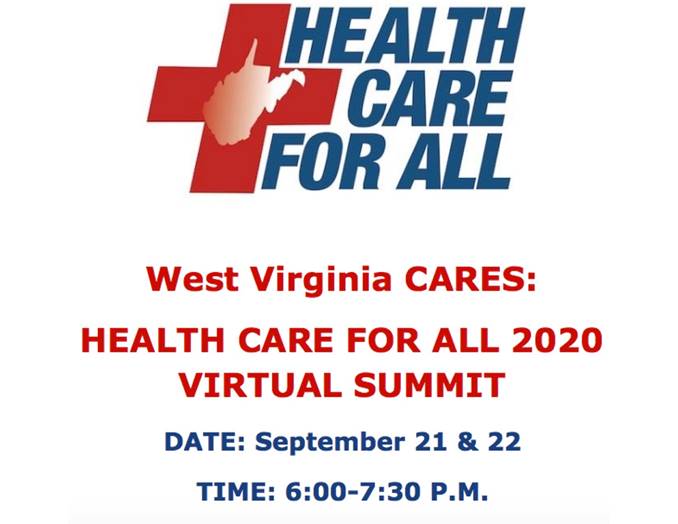Yesterday a Republican-proposed COVID relief package failed to pass the U.S. Senate. While West Virginia’s communities desperately need additional relief, the provisions included in this legislation were far too meager to meet the immediate and ongoing needs of our state and people.
WVCBP interim executive director stated in a press release yesterday:
“Today’s COVID proposal, supported by West Virginia’s Senator Capito, fell far short of an adequate response to the continued challenges facing West Virginia families and communities. By failing to include measures to increase food security, rental assistance, and aid to state and local governments, this package would have left our state and its people without the support they need to recover from the ongoing health and economic crisis.”
Congress must act with urgency not only to pass the next package, but to ensure that the package is robust enough to meet the immense and varied needs of our communities.
Urge Senators Manchin and Capito to advocate for adequate relief here.
Read the Center’s full statement responding to the “skinny” COVID relief package and outlining the extent of support West Virginia’s communities need to see here.

With lack of any access to broadband connectivity currently causing hardship for over 100,000 West Virginians, the COVID-19 pandemic highlights how truly essential this access is for our communities. From tele-medicine services that keep patients connected to doctors without leaving their homes to increased reliance on remote work and the need for virtual schooling because of widespread COVID cases, access to reliable broadband has become a critical tool for being able to navigate our world amid the pandemic.
Indeed, access to a reliable internet connection could determine if more than 100,000 West Virginia residents can file for and receive more than $100 million in critical cash assistance made available to them via the Coronavirus Aid, Relief, and Economic Security (CARES) Act passed by Congress in March.
Economic Impact Payments (EIPs) — commonly referred to as “stimulus checks”– are a key provision of the CARES Act and are intended to help reduce the financial burden of the pandemic. These direct cash payments of $1200 per individual (and $500 per qualifying child) have provided billions of dollars of relief for families across the country. Yet, obstacles remain ahead of the October 15th deadline for low-income families to file for and receive this critical support.
Read Seth’s full piece here.
Learn more about eligibility and file for your EIP here.


Despite Gov. Justice’s comments last week of a recovering West Virginia economy, we have reason to believe otherwise.
Senior policy analyst Sean O’Leary was interviewed by the Beckley Register-Herald to discuss the true state of West Virginia’s economy and the recent blog post he wrote on the topic. He is quoted saying:
“… a closer look at the state’s revenue collections shows a weakening state economy that has been relying heavily on federal aid to stay afloat.”
The article goes on, stating:
“The biggest take-away from O’Leary’s piece, we think, is that the state has collected $1.6 billion in tax revenue these past four months, which adds up to $264.6 million less than what it had collected over the same four months last year and $204.9 million less than original revenue estimates.”
Read the full article here.

This week’s Inside West Virginia Politics discussed how the state’s schools prepared to resume classes, the ongoing procedures they are expected to follow to mitigate COVID-related harm, and how they plan to continue providing meals to students who will engage in remote learning.
Host Mark Curtis brought on our policy outreach director Seth DiStefano, who expressed his concerns about the difficulties schools will face to feed students attending classes online and what support West Virginia needs to receive from the federal government in order to successfully keep families fed.
Listen to the full segment here.

ReImagine Appalachia is a broad and inclusive coalition of individuals and organizations that was born out of a broad recognition that the economy has not been working for most people and places in the Ohio River Valley.
Join us for a brainstorming session on how a revived Civilian Conservation Corps, as part of climate change legislation or a green new deal, could be designed to meet the needs of people ensnared in our criminal justice system.
In addition to the Civilian Conservation Corps, the town hall will touch on topics such as regenerative agriculture practices, collateral sanctions, and economic recovery through inclusive green job opportunities, as well as provide a platform for individuals to share their personal stories dealing with the criminal justice system.
This free event will take place on Monday, Sep. 14 from 6-7:30pm EST.
Learn more and register here.

Are you tired of struggling — or watching friends and family struggle — to get lifesaving health care? Do you think health care is a human right? Do you agree that West Virginians deserve better? We do and we need your help.
We’ll be co-hosting this summit along with our friends at Health Care for All WV, West Virginians for Affordable Health Care, and West Virginia Citizen Action Education Fund.
Please join us to hear from expert panelists; learn about the Health for All campaign, our three big victories so far this year, and the changes we believe we can win together in 2021; and tell us how you think we can improve.
You can register here. We value your input and would love to see you there!

As a result of the Trump administration’s decision to cut the collection of 2020 census data short, the self-response deadline to complete the census in West Virginia is now September 30.
From reduced FMAP and CRF funding to lost congressional seats and business opportunities, an incomplete and inaccurate census will have a harmful impact on our state.
A recent article dove into just how damaging this impact will be:
“…unless the deadline for the census is extended, West Virginia stands to lose millions of dollars in federal funding every year until the 2030 census is complete.”
As of August 4, the national census response rate was 62.9% and the response rate in West Virginia was only 54.6%.
If you have not done so already, please make sure that you and those in your household are included. Each person accounted for means more funding for much-needed public services!
You can complete the census online here.

The Senate-proposed HEALS Act and Trump’s executive orders fail to include the much-needed 15 percent increase in the maximum SNAP benefit for all households. As Congress resumes negotiations for the next federal package, it is imperative that policymakers include this essential boost to SNAP.
The number of people struggling to put food on the table has increased dramatically as a result of the pandemic and recession, particularly in households with children.
SNAP is America’s most successful anti-hunger program. It has proven to be one of the most effective mechanisms available both to reach low-income households and to provide counter-cyclical help in recessions. The modest boost described above would help millions of American families, resulting in about $25 more per person per month.
Watch the video below to learn more about why SNAP matters now more than ever.

West Virginia’s coal-impacted communities have been heavily burdened with economic, environmental, and public health problems as a result of the mining industry. The RECLAIM Act would release $1.6 billion from the Abandoned Mine Lands Fund to jumpstart the reclamation of mine land abandoned before 1976. In West Virginia, the RECLAIM Act would make available approximately $200 million over five years to support reclamation projects that would work to clean up our communities.
Urge your senators to pass the RECLAIM Act here.
